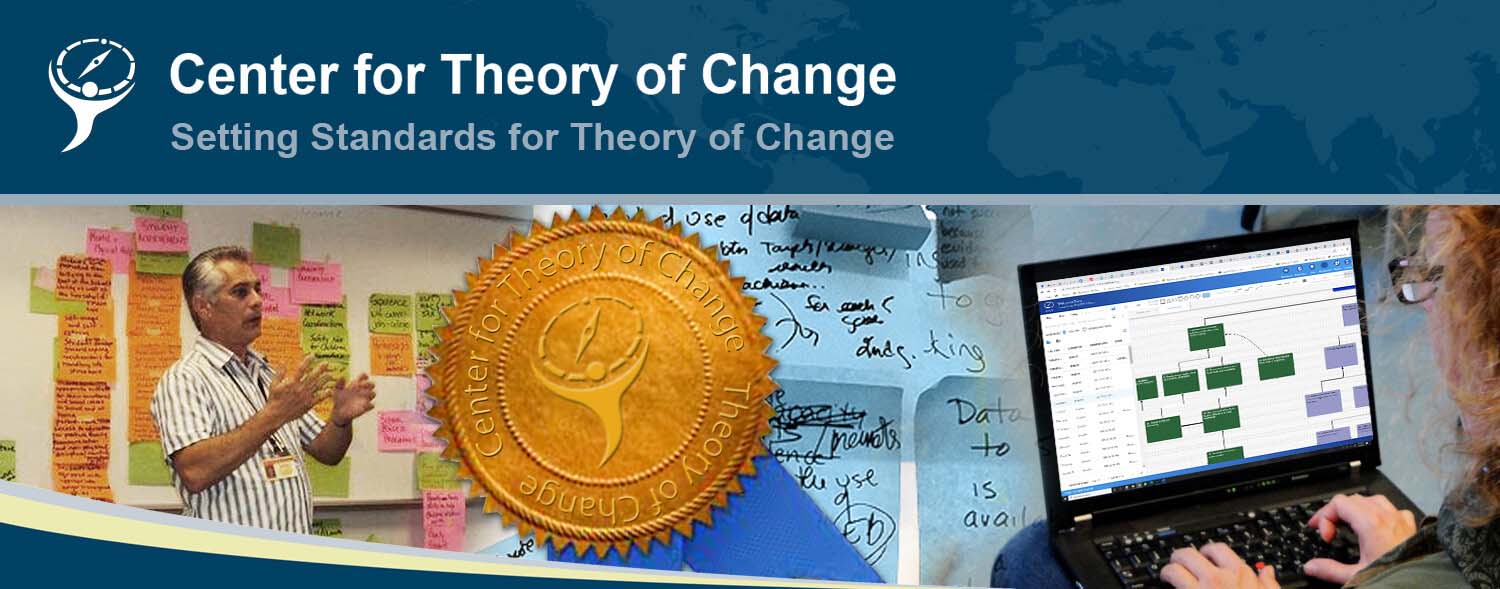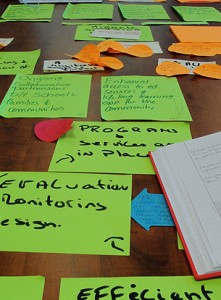Click here to listen to the episode.
Welcome to another smashing episode from The middle Road. In this episode, Nishant Malhotra welcomes Dr. Helene Clark for the thought leadership podcast series. In today’s podcast, Nishant chats with a leading global expert and social change maker within the International Development Sector.
Dr. Helene Clark is the Founder and Director of ActKnowledge, and Board Chair of The Center for Theory of Change, a global thought leader in enabling social change and impact within the social impact sector. ActKnowledge is a social enterprise that connects social change practice with rigorous study of how and why initiatives work. ActKnowledge is the founder of Center of Theory of Change, a nonprofit focusing on outcome-driven intervention based strategic framework tool called Theory of Change (ToC). Theory of Change is a valuable tool to understand the impact of policies/interventions/programs (measures) connected to understand the outcomes linked to these measures.
Theory of Change
Theory of Change is today ubiquitous within the international development sector to understand, analyze, plan and implement long-term change through backward mapping of interventions to define the sustainable outcome. Theory of Change technique/program logic can be implemented in any organization or within our lives to bring about a more holistic change for the better. The conversation focuses on the development and importance of the Theory of Change program logic within the international development sector.
Helene breaks down the Theory of Change framework to explain the causal intervention-linked outcome-based methodology and shares a snapshot of its evolution. Helene, highlights key concepts in ToC, for example, the difference between outcome and output, backward mapping of interlinked interventions for the desired outcome etc. We discuss at length how ToC can be used in the educational institutes with real-time examples to foster a long-term strategic change including embedding the concept in the curriculum and about the prestigious Theory of Change certification.
Dr. Helene, I thank you for taking time for a fabulous chat about your work.
You are a leading authority on the Theory of Change (ToC) framework. Theory of Change is one of the most critical program logic for evaluating Impact Evaluation, made famous by the Aspen Roundtable for Community Change, ActKnowledge initiatives, publications and outreach on this topic.
Helene, as the Founder and Director of ActKnowledge, and Board Chair of The Center for Theory of Change, do share the evolution of this multi-stakeholder community-driven outcome focused framework for measuring the impact of projects/ interventions especially from the early 90s.
- But first, for the benefit of the audience, since we would be speaking about interventions repeatedly, please explain in your parlance, how would you define interventions. Do elaborate on your definition of strategy.
Theory of Change concept came through a collaborative movement among multiple actors/entities. ASPEN, ActKnowledge, and other global actors/entities played a monumental role in designing the Theory of Change framework.
How did these partnerships evolve over time?
- In your paper Theory of Change Technical Papers (Dr. Dana H. Taplin, Dr. Heléne Clark, Eoin Collins, and David C. Colby) and Basics, A Primer on Theory of Change, (Dr. Dana H. Taplin, Dr. Heléne Clark), you mention the importance of long-term goals and back mapping a series of interconnected interventions in the short, medium, and long term to achieve outcomes. This concept was revolutionary and counterintuitive to the prevailing thought of following forward-looking indicators to make a long-term change. Please, explain the process of enunciating a simple example to understand the idea better? *
- How does the qualitative framework of the Theory of Change facilitate a change in the outcome through casually linked interventions? Can you explain through a simple example?
In the PACE Theory of Change: Discussion Paper Prepared by Zabi Rahat and Eoin Collins, highlights the importance of driving long-term outcome-driven change within the civic societies significantly through universities. United Nations Educational, Scientific and Cultural Organization (UNESCO) has identified ways in which universities can engage in sustainable development goals. 1
- How and in what ways should universities use Theory of Change as a tool to implement a holistic mindset change among students. How can ToC engage sustainable development goals as part of the curriculum in educational institutes?
Helene chat about your flagship course, the certification course in Theory of Change. How does the course educate people on the theory?
- How will the certification help in catalyzing a successful and effective career for people within the international development sector? Theory of Change is an important part of impact evaluation, to understand the impact of interventions in accelerating outcome change.
- Helene, as a leading expert on ToC, how do you think the Theory of Change will evolve not only within the global development sector but also in organizations and civic societies as a strategic tool in driving long-term change in the future. You think it’s even more critical especially during the time of the pandemic
- Before we go to the last question, please share any message for professionals and students who want to make a career in social impact
- Finally, share with everyone any Aha moment that brings happiness to you.
Helene, I deeply appreciate for sharing your thoughts and time as an expert on a strategic tool and technique for understanding, planning, and implementing a long-lasting change within our work and lives. Thank you and hope to keep in touch.
References
- Theory of Change Technical Papers
- Theory of Change Basics, A Primer on Theory of Change: Helene Clark and Dana Taplin
- ActKnowledge Presents Theory of Change Online – YouTube video
- The Community Builder’s Approach to a practical guide to theory development Andrea A. Anderson, Ph.D
- PACE Theory of Change: Discussion Paper Prepared by Zabi Rahat and Eoin Collins

